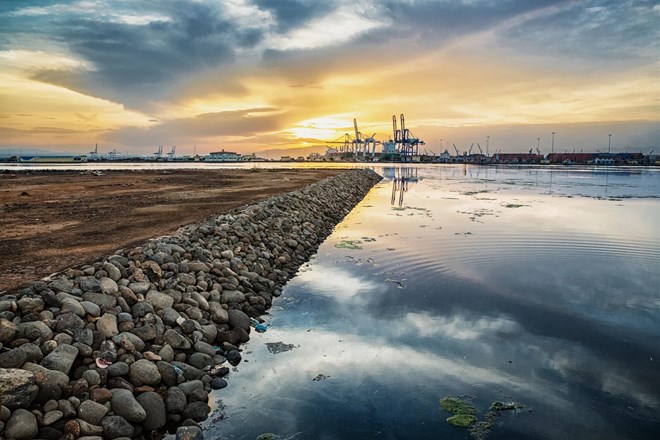
Wednesday November 22, 2023
By Wes Martin

Djibouti’s geographical positioning, straddling the junction of Africa and the Arabian Peninsula, has recently thrust it into a crucial role in the sphere of global economics. This nation transcends its military significance, using its political stability as a platform to mediate regional conflicts and develop a sophisticated seaport infrastructure. This article ventures deep into the heart of Djibouti’s economic landscape, exploring the myriad opportunities and challenges it faces, and evaluating its potential to evolve into a manufacturing powerhouse for Africa.
In the realm of global economics, few nations possess the geographical advantage of Djibouti. Situated on the east coast of Africa, at the southern mouth of the Red Sea and facing the expansive Indian Ocean, it serves as a vital conduit for maritime traffic between Europe, Asia, and Australia via the Suez Canal.
For a long time, Djibouti’s narrative was predominantly defined by its strategic military importance, attracting a diverse array of international military presences. The Djiboutian government leased land to American, German, Japanese, Chinese, and other international forces, creating a unique global military mosaic.
This concentration of international military power in Djibouti has been pivotal in maintaining stability in the volatile regions of eastern Africa and the Arabian Peninsula. The Djiboutian government has skillfully leveraged this stability, playing a significant role in mediating conflicts and fostering peaceful resolutions in neighboring nations. Its strategic port also serves as a frontline in the battle against piracy, particularly against Somali pirates, ensuring secure maritime lanes.
Djibouti’s development of one of the world’s most advanced seaports, capable of accommodating deep-draft ships, marks a significant stride in its economic progress. However, this is not the culmination of Djibouti’s aspirations but a stepping stone in its continuous journey towards economic advancement.
The continent of Africa, abundant in natural resources, sparked a frenzied land grab by European powers in the 19th century. Now, in the post-colonial era, there is an urgent need for a modern transportation network to export these resources. Recognizing this need, China, as part of its Belt and Road Initiative, is investing in constructing a state-of-the-art rail system into the continent’s heartland, with plans for an expansive intercontinental highway system to follow.
The U.S. State Department’s 2023 Investment Climate Statement highlights the opportunities and assets available in Djibouti. These include a strategic geographic location, free trade zones, an open trade regime, and a stable economic environment. Key sectors identified for investment include transport, logistics, real estate, energy, agriculture, and tourism.
According to the African Development Bank Group’s latest report, Djibouti’s economic prospects appear bright. The nation’s GDP is projected to grow by 5.4% in 2023 and 6.5% in 2024. Concurrently, inflation is expected to stabilize at an average of 3% over the next two years.
However, Djibouti faces its share of challenges. The COVID-19 pandemic significantly impacted its economy, heavily reliant on international shipping. Recovery, as in many countries worldwide, is a gradual and ongoing process.
To attract and facilitate foreign investment, the Djiboutian government established the National Investment Promotion Agency (NIPA). Domestically, NIPA is focused on modernizing investment regulations, while externally, it is actively engaging with potential private sector investors, offering them attractive investment options without the requirement for local Djiboutian ownership stakes.
One of the critical areas that the government of Djibouti and NIPA are addressing is the need for transparency and anti-corruption measures in business practices. Both entities are acutely aware that investor confidence hinges on the reliability and trustworthiness of business and bureaucratic environments.
Djibouti’s approach to energy is a case study in turning challenges into opportunities. As a nation not endowed with oil reserves, it is focusing on reducing foreign energy dependence by enhancing its renewable energy capabilities, particularly in solar, wind, and geothermal energy. This aligns with the State Department’s emphasis on energy as a key investment sector.
An aspect not highlighted in the State Department report is Djibouti’s potential to transition into a production-based economy. As transportation networks into the African hinterland reach completion, Djibouti is poised to become a crucial node, receiving raw materials from across the continent and exporting finished products through its port.
The demographic profile of Djibouti is marked by a youthful and eager workforce, keen to capitalize on new employment opportunities. This dynamic is reminiscent of South Korea’s remarkable economic ascent, despite its limited natural resources. Like South Korea, the willingness to work and learn has been a driving force. However, Djibouti has an additional advantage; it is not constrained by an over-reliance on overseas shipping, thanks to the impending completion of land-based trade routes across Africa.
Djibouti’s potential to transform into an economic hub for Africa is akin to what Rotterdam represents for Europe as its largest seaport. Through its port, Djibouti could facilitate the import and export of goods for numerous countries. Coupled with foreign investment, Djibouti possesses the necessary means and labor force to develop into a thriving production-based economy. The prospective returns on investment for all stakeholders are poised to be monumental.